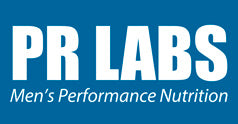Prostate Cancer Awareness Month: Why it’s Important
Every year, Prostate Cancer Awareness Month sheds light on a health concern that impacts millions worldwide. Here are some eye-opening facts.
- Over 1.4 million men are diagnosed with prostate cancer annually.
- It's the second most common cancer among men.
- Early detection can lead to a 5-year survival rate of almost 100%.
As we navigate this month, it's crucial to understand its significance, history, and the actionable steps one can take. Let's embark on a comprehensive journey.
The Origins of Awareness
The roots of Prostate Cancer Awareness Month stretch back decades. The primary objective has always been multifaceted
- Recognizing Pioneers: Saluting those who have made groundbreaking advancements in research and treatments.
- Victory Over Struggles: Celebrating survivors while acknowledging the hardships faced by patients and their families.
- Emphasizing Prevention: Drawing attention to early detection, which plays a pivotal role in increasing survival rates.
Role of Awareness
With the advancements in medical science, early detection of prostate cancer can lead to favorable outcomes. However, awareness is the bridge to such detections. A deeper understanding will:
- Debunk prevalent myths, replacing fear with facts.
- Ensure more men undergo regular screening.
- Foster a community of support, ensuring patients don't navigate their journey alone.
Busting Myths Surrounding Prostate Cancer
Misinformation can be a formidable barrier to effective prevention and treatment. Let's address these head-on:
- Only Senior Citizens are Affected: While age elevates the risk, men in their 40s and 50s have also been diagnosed.
- It's Only Genetic: Family history contributes, but lifestyle, diet, and other environmental factors can be equally influential.
- No Symptoms, No Worries: Many men with early-stage prostate cancer display no symptoms, highlighting the importance of regular check-ups.
Active Participation: Beyond Just Knowing
While awareness is the cornerstone, action solidifies the foundation of this initiative. Here are ways you can make an impact:
- Digital Advocacy: Use the power of social media platforms to spread knowledge, debunk myths, and share personal stories.
- Educational Workshops: Organize or attend workshops in local communities, schools, or workplaces.
- Fundraisers and Charitable Acts: Contribute to research foundations or NGOs working in this domain.
Navigating the Journey of Prostate Cancer
The journey through prostate cancer can be a daunting one. Whether you find yourself in the role of a patient, someone who's triumphed over the disease as a survivor, or a supportive family member, the experience brings with it a whirlwind of emotions and challenges. Fortunately, in our interconnected world, a myriad of support systems and resources exist to ensure that no individual has to navigate this path in isolation.
Supportive Communities and Modern Solutions
- Support Groups: Across the world, there are numerous groups dedicated to offering both emotional and informational support. These groups are often composed of patients, survivors, and caregivers, forming a community that understands the intricacies of the journey. Sharing stories, advice, and comforting words, they ensure that everyone has a safe space to express their feelings and concerns.
- Telemedicine Consultations: Technology has revolutionized the way we seek medical advice. The power of telemedicine ensures that no matter where you are, expert consultations are merely a click away. This not only brings convenience but also opens the door to seeking opinions from renowned specialists across the globe.
- Counseling and Therapy: The psychological aspect of dealing with prostate cancer is often as challenging as the physical one. Recognizing this, many organizations and professionals offer dedicated counseling and therapy sessions tailored for patients and their families. These sessions play a pivotal role in ensuring mental well-being and equipping individuals with coping strategies.
Empowerment through Knowledge
Living in the digital era has its advantages, especially when it comes to accessibility to information. An informed individual is an empowered one, and there's no shortage of resources to enhance one's understanding of prostate cancer:
- Webinars and Online Courses: Medical professionals, survivor groups, and healthcare organizations frequently conduct webinars and online courses. These sessions aim to educate, spread awareness, and offer updates on the latest research and treatments in the realm of prostate cancer.
- Books and Research Papers: For those inclined towards in-depth study, countless books and research papers are available. They cover a range of topics, from understanding the basics of prostate cancer to exploring the latest advancements and medical viewpoints.
- Survivor Blogs and Vlogs: Nothing speaks more genuinely than the voices of those who've experienced the journey firsthand. Numerous survivors share their personal journeys, insights, challenges, and victories through blogs and vlogs. These personal accounts serve as beacons of hope, practical guides, and a testament to human resilience.
The Road Ahead: Future Prospects
Research is ongoing, and every day we move a step closer to better treatments, and hopefully, a cure. The future shines bright with:
- Advanced Treatment Modalities: Techniques that are less invasive with fewer side effects.
- AI and Machine Learning: Using technology to predict, prevent, and treat prostate cancer more effectively.
- Global Collaborations: Countries pooling resources and knowledge to combat this global health concern.
Making Lifestyle Changes
Lifestyle changes can play a significant role in reducing the risk of many diseases, including prostate cancer. It's essential to note that while these recommendations can decrease the risk, they do not eliminate it completely. Here are some lifestyle changes that may help reduce the risk of prostate cancer:
Dietary Habits
- Eat More Fruits and Vegetables: These are rich in vitamins, minerals, and antioxidants that can help reduce the risk of prostate cancer.
- Reduce Red Meat Consumption: Some studies suggest that eating a lot of red meat, especially if it's cooked at high temperatures, might be linked to an increased risk of prostate cancer.
- Increase Omega-3 Intake: Consuming fatty fish like salmon, mackerel, and sardines can provide omega-3 fatty acids, which have been linked to a reduced risk of prostate cancer.
- Maintain a Healthy Weight: Obesity might increase the risk of prostate cancer. Regular exercise and a balanced diet can help maintain a healthy weight.
- Regular Exercise: Physical activity can help regulate hormone levels and boost the immune system. Regular exercise, such as walking, jogging, cycling, or swimming, can help reduce the risk of developing advanced prostate cancer.
- Limit Alcohol Consumption: Moderation is key. It's advisable to limit alcohol intake, with some recommendations suggesting no more than two drinks per day for men.
- Avoid Smoking: While the direct link between smoking and prostate cancer is still under study, smoking increases the risk of many other cancers and health conditions. It's a good idea to quit or, at the very least, reduce smoking.
- Regular Medical Check-ups: Early detection can play a significant role in managing and treating prostate cancer. Regular check-ups, including discussing prostate-specific antigen (PSA) testing with your doctor, can help in early detection
Try Prost-P10x by PR Labs
Prioritize your prostate and urinary health with Prost-P10x. Doctor-formulated, this blend includes antioxidants, vitamins, and Pygeum. Research indicates its ingredients may support overall men's health, particularly relating to the prostate and urinary functions.
Conclusion
In summation, Prostate Cancer Awareness Month is not just a calendar event but a beacon of hope and knowledge. Its overarching goal remains consistent: to arm individuals with information, provide robust support systems, and continuously strive for a world where prostate cancer is a concern of the past.
Join Our Community & Save 10% Off Your First Order
We’ll send you a coupon code for 10% off your first order. Stay on our list
and we’ll keep you updated with tips for optimal health, new product launches, sales, and more!




